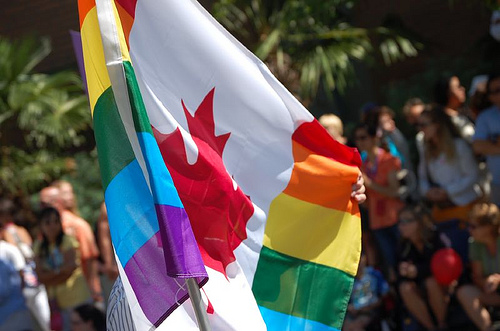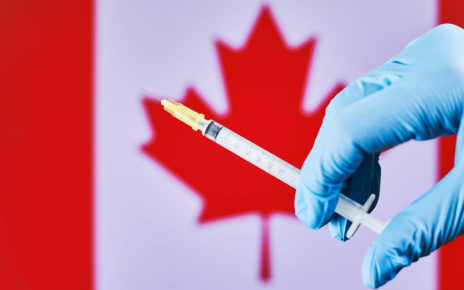[captionpix align=”right” theme=”elegant” width=”300″ imgsrc=”http://media.winnipegfreepress.com/images/648*396/cpt110121644_high.jpg” captiontext=”A poster of Russian President Vladimir Putin sporting makeup is carried during the Vancouver Pride Parade on Sunday August 4, 2013. THE CANADIAN PRESS/Darryl Dyck”]
Since Russia passed a law criminalizing ‘homosexual propaganda’, gay rights activists and allies have called for boycotts of all things Russian, including the upcoming 2014 Winter Olympic games in Sochi. John Baird, Canada’s Minister for Foreign Affairs, has come out against an Olympic boycott while sharply criticizing the Russian government. Although the Conservatives have made consistent efforts to promote gay rights overseas, they should consider alternative strategies to increase their advocacy on behalf of homosexuals abroad.
The International Lesbian, Gay, Bisexual, Trans and Intersex Association (ILGA) names 76 countries where same-sex sexual acts are banned by law. Included in these are Canada’s fellow Commonwealth countries Bangladesh and Nigeria, where same-sex relationships are punishable by fines and imprisonment, or for males in Nigeria, death. In Europe, Turkish-occupied northern Cyprus only recently decriminalized homosexuality.
Canada’s government is no stranger to criticizing countries for their treatment of homosexuals. They have repeatedly criticized the government of Uganda for its attacks on gay-rights, even if they have provided funding to aid groups that take anti-homosexual stances. After working behind the scenes for months to dissuade Russian President Vladimir Putin’s government from passing the ‘gay propaganda’ bill that sparked the controversy, John Baird blasted the law. While ruling out a boycott of the games, Baird says he hopes “decency will prevail.”
Baird’s condemning of Russia alienated some elements of the Conservative support base, but for the most part the Tories claim to be receiving broad support for their stance. The few voices against this position include a conservative women’s organization, REAL Women of Canada, and an Orthodox Church leader, who wrote to the National Post to protest how gay rights activists ‘demonize’ Russia’s policies.
Taking advocacy further
The Conservatives have a track record of defending gay rights abroad, but there are still steps they can take to further the rights of homosexuals overseas. In particular, advocacy work at prominent forums like the United Nations, where 40% of countries still criminalize homosexuality, could yield results. More exclusive forums like the G-8, where Canada has a status disproportionate to its size, are another place to push for a consensus on gay rights.
Re-evaluating the Conservative strategy with respect to the UN and other multilateral initiatives, namely re-engagement with the UN human rights apparatus, could also provide Canada with renewed status. This could translate into rhetorical capital the government can use to name and shame countries that abuse gay rights. The UN already has the ‘Free and Equal’ initiative, which Canada could fully back and champion at every opportunity.
In a more immediate and concrete sense, the government should take strategic policy steps to address the consequences of persecution, while sending a clear message to the world. Along with their re-make of refugee policy, the Conservatives could make it clear to persecuted homosexuals around the world that their claims as refugees will be given additional, expedited consideration. This would send a message to the world that Canada is willing to follow through on its rhetoric and take direct action to protect homosexuals from abuse.
Fans of more heavy-handed foreign policy may favour establishing ‘red lines’ of abuse that set out the limits of the government’s patience. If a government, for example, decides to punish homosexuality by death, Canada could set out specific sanctions or other consequences to ensue. The government could then try to build a coalition of countries to amplify their message.
The drawback of this last approach is of course the sheer number of countries that criminalize homosexuality, close to half the United Nations’ membership. It is not practical to sanction such a large number of countries, and may not gain sufficient support to be effective. Keeping the option on the table for especially brutal persecutors could, however, still be a useful tool for the government.
Standing up for gay rights
While the Conservatives have made gay rights a foreign policy priority throughout their time in government, there is space to do more to ensure that homosexual individuals are treated with respect and dignity worldwide. Although the government has spoken out on behalf of Russian and Ugandan homosexuals persecuted by their governments, they have further options available to them, through international organizations and direct policy action. From offering special consideration of asylum claims to increasing the rhetorical condemnation of rights-violators, the Canadian government can and should expand their gay-rights advocacy.




